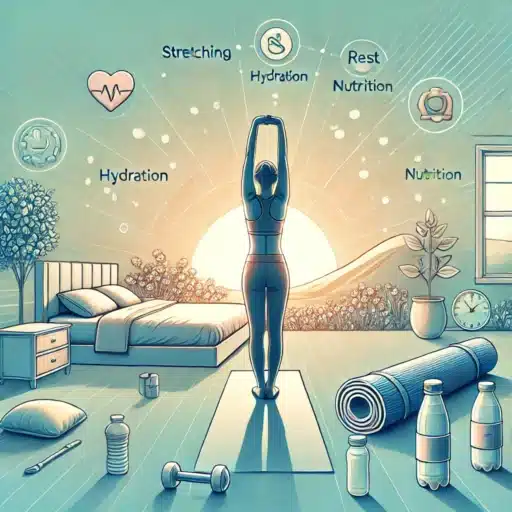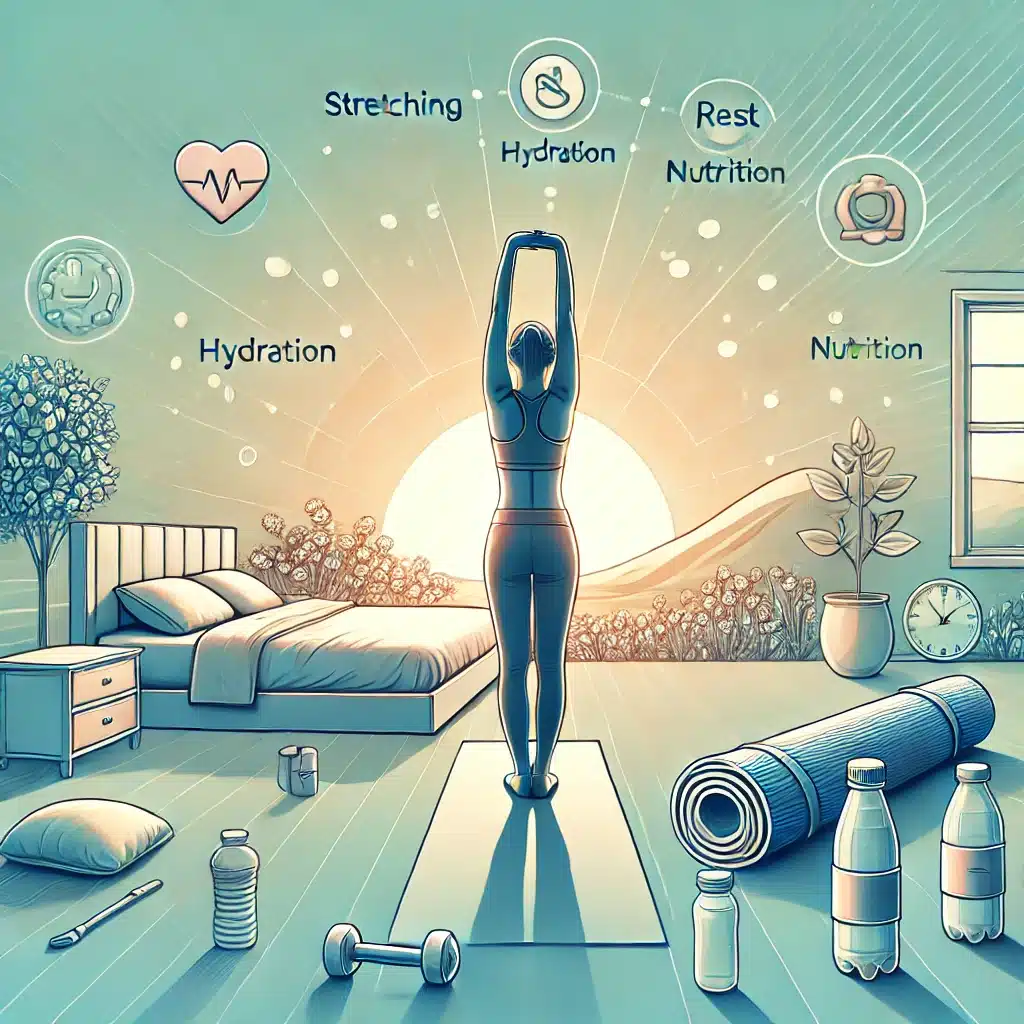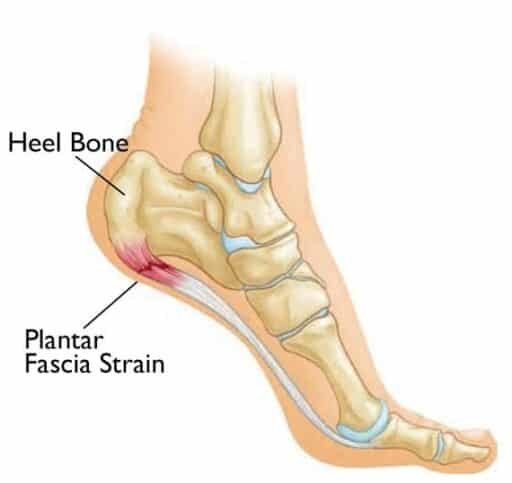
The Importance of Recovery and How to Do It Right – Focusfit PT
By Ryan Fraser, Personal Training, Yoga & Holistic Health at Focus Health & Fitness When most people think about fitness,…
September 24, 2024

By Ryan Fraser, Personal Training, Yoga & Holistic Health at Focus Health & Fitness
When most people think about fitness, they immediately think of hitting the gym, running, or lifting weights. While these are crucial for building strength and improving performance, there’s another aspect of fitness that often gets overlooked: recovery. Over the years as a personal trainer, I’ve seen firsthand how essential recovery is to long-term success and overall health. Without proper recovery, you risk injury, burnout, and, frankly, slower progress toward your goals.
So today, I want to talk about why recovery is so important, what it looks like, and how you can do it right to make the most of your fitness journey.
Why Recovery Matters
When you work out, whether it’s strength training, yoga, or cardio, you’re putting stress on your muscles and body. This stress causes tiny tears in the muscle fibers, and it’s during the recovery process that your body repairs and rebuilds these muscles, making them stronger and more resilient. Without proper recovery, your body never gets the chance to heal, leading to overtraining, soreness, and even injury.
Recovery isn’t just about letting your body rest. It’s about giving your muscles, joints, and mind the time they need to repair, recharge, and come back even stronger for your next session.
Signs You Need More Recovery
A common mistake I see in people training on their own is not recognizing when they need to take a step back and recover. Here are a few signs that your body might be asking for more recovery time:
– Persistent soreness that lasts more than a few days
– Decreased performance or strength
– Insomnia or trouble sleeping
– Irritability or feeling “burnt out”
– Higher-than-usual heart rate at rest
If you’re experiencing any of these symptoms, it’s time to prioritize recovery in your routine.
How to Recover Right
Now, let’s get into how to recover properly. Recovery doesn’t mean lying on the couch for days (although sometimes a rest day on the couch is exactly what you need). Active recovery, stretching, sleep, and nutrition are all key components of the recovery process.
1. Active Recovery
Active recovery refers to low-intensity activities that promote blood flow to the muscles without putting too much stress on them. This could be walking, gentle cycling, swimming, or even one of our Ryoga classes at Focus Health & Fitness. I can’t stress enough how important active recovery is for keeping the body moving while also allowing your muscles to recover.
My Tip:
If you’re feeling sore but still want to move, opt for a light stretching session or an active recovery workout to get the blood flowing. This keeps your body in motion without putting too much strain on already tired muscles.
2. Stretching and Mobility
Stretching is an essential part of recovery that many people overlook. After a tough workout, your muscles can tighten up, leading to decreased flexibility and increased risk of injury. Regular stretching helps maintain mobility and flexibility, which is crucial for functional movement and injury prevention.
My Tip:
Dedicate at least 5-10 minutes after every workout to stretch your major muscle groups. Incorporating dynamic stretches before your workout and static stretches after will help improve flexibility and range of motion. You can also join one of my Ryoga sessions, which is perfect for stretching, balancing, and promoting recovery.
3. Sleep: The Ultimate Recovery Tool
There’s no better recovery tool than sleep. This is when your body repairs itself the most. If you’re not getting enough quality sleep, your muscles can’t recover properly, and your performance will start to suffer. As a busy professional, I know it can be hard to prioritize sleep, but it’s crucial if you want to see results.
My Tip:
Aim for 7-9 hours of sleep per night. Create a consistent sleep schedule, avoid screens an hour before bed, and make your sleeping environment as comfortable as possible. Trust me, your body will thank you!
4. Hydration and Nutrition
Your muscles need the right fuel to recover, and that means staying hydrated and eating properly. After a workout, your muscles are craving nutrients like protein and carbohydrates to repair and replenish energy stores. Protein helps rebuild muscle, while carbohydrates help restore glycogen levels, which gives your muscles the energy they need for recovery.
My Tip:
Within 30-60 minutes after your workout, consume a meal or snack that includes both protein and carbs. Also, don’t forget to hydrate! Drinking water throughout the day will help flush out toxins and keep your muscles hydrated for optimal recovery.
When to Take a Full Rest Day
Even with active recovery and proper stretching, there are times when your body needs complete rest. Full rest days are essential for preventing overtraining and giving your muscles time to fully recover. Don’t feel guilty for taking a day off — your body needs it!
My Tip:
Listen to your body. If you’re feeling mentally or physically drained, take a rest day. Use the time to do something relaxing, like meditation or spending time with family. Your next workout will be even better because of it.
Recovery is not just an optional part of your fitness journey; it’s a critical piece of the puzzle. By prioritizing recovery, you’ll not only feel better but you’ll also see faster results and prevent setbacks. Whether it’s through active recovery, proper nutrition, or simply getting enough sleep, taking care of your body between workouts will lead to long-term success.
If you’re not sure how to incorporate recovery into your routine, or if you’ve been feeling constantly sore or fatigued, reach out to me at Focus Health & Fitness. Together, we can create a balanced plan that includes the recovery you need to hit your goals safely and effectively.
Train smart, recover smarter, and keep progressing!
ActiveRecovery, Balance, fitness, FitnessJourney, FocusHealthFitness, HealthAndFitness, HolisticHealth, hydration, mobility, MuscleRecovery, nutrition, personaltraining, Recovery, RestDay, ryoga, SelfCare, SleepHealth, STRETCHING, Wellness, yoga

Plantar fasciitis is one of the most common foot conditions, causing pain and discomfort along the bottom of the foot,…
January 22, 2025
* indicates required fields